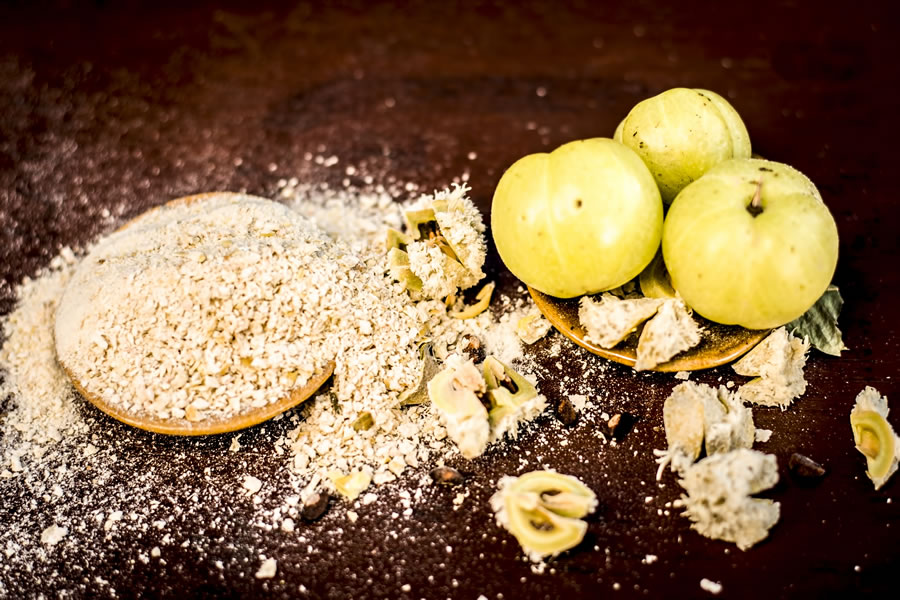November!
Since we in the northern hemisphere have less daylight to work with, we can begin other little adventures indoors like-
healing, tasty, healthy, amazing herbs aka spices.
Why are herbs so important in cooking, in Ayurveda, in healing? What do you know about the herbs you already use? And are you afraid to use herbs beyond the basics?
If you are anything like I was and are not sure how, when or where to use various herbs, then this will seem like a a bold step forward in the taste sensation direction. I used to be apprehensive about adding anything more than basics like salt, pepper, cayenne, garlic, and bay leaf to my cooking. But through much experimentation inspired by my Ayurvedic path, I started to see unlimited possibilities in the use of herbs.
By opening up to using an array of spices, you’ll give yourself an opportunity to make a special connection to the cooking process and to the food itself. Getting in touch with each ingredient in your meals will put you more in tune not only with the environment, but also with your own body! You can go the ‘easy route’ and dine at a restaurant or buy prepackaged food stuffs, but it’s not the same. Not as healing. Never as connected. Plus, you’ll miss out on the fun of experimentation in the culinary and taste departments of life.
Herbs are part of rasa, which means several things, but one of them is taste. Rasa also means life and juice–juiciness of life! Taste is important. Taste begins the digestive process after sight and smell are taken into either conscious or subconscious consideration. And taste is also associated with the feeling we get from certain foods. Health isn’t about implementing a food list after reading how ‘this is good for you, that is bad for you’, but about the energy behind the process in creating a dish itself. Prana, the life force, rides not only on air, but also in food. So the life force, which becomes a part of us, varies in quantity and quality as it is taken in through our orifices– our noses and mouths.
This is one of the many reasons why using good herbs in good food with good intent is important.
Herbs aid with digestion, will prevent gas, alleviate dryness, create or dispel heat. Some herbs help get rid of parasites in the body, fight viruses, and make our immune systems stronger. Herbs can be good for the mind, circulation and can have affinities for the reproductive system, the nervous system, the lymphatic system, the urinary tract, the blood.
When you think about it, herbs are really quite amazing and our health can depend on them!
I think one of the reasons why many Americans are so sick is because our food is devoid of prana. We also don’t emphasize herbs much beyond salt and pepper. Salt and pepper have their place and I love them both. But they should be working with other great spices in a stew, a soup, a casserole, a dessert.
At the end of an Indian meal, one is offered a mixture of chewy herbs like fennel to help with the assimilation of the food and to make the breath pleasant.
This same culture adds herbs to hard to digest foods like cold, thick yogurt, to make it more digestible. This is called takra and can be taken after a meal to help prevent bloating.
It helps to be reminded that how well we digest means everything. Good digestion enables assimilation of nutrients by the body. Good digestion keeps things moving. Good digestion enables the prana or life force to flow unimpeded throughout our systems so that things don’t swell, overheat, get inflamed, or get stuck.
So read on and learn what herbs can be good for what ails you, what could ail you, or what ails another. Learn to refine your eating experience and crave a balance of the six tastes: sweet, salty, sour, pungent, astringent, and bitter so that the sweet and salty craving isn’t all consuming, knocking your system out of whack.
Example of salt and pepper energetics:
Salt embodies (of course) the salty taste which nourishes tissue (in excess salt overwhelms our tissues, causing them to retain water) while pepper embodies the pungent taste and is great for drying tissue and losing weight.
Just knowing that all herbs have specific energetics, post digestive effects, and unique actions can help us become more aware of their potential benefits and enhance our appreciation of them.
Here’s your chance to experiment. Experiment with one new herb a week. Or month. Or buy mixtures of herbs from a good organic herb source like Mountain Rose and incorporate into your beverages, stews, soups, and grain dishes.
Add a pinch of a fresh herb to leftovers.
Start slowly.
Start somewhere.
And if you don’t cook much, try cooking one meal a week and add onto that every few months.
Make cooking a habit.
Begin a more conscious relationship with herbs. It takes a bit of practice and a little attention, like everything else we want to develop a relationship with.
Many healing herbs are culinary, some are strictly medicinal (that means that they don’t taste great and may impart a strong bitter or pungent experience that is good for cleansing, but not so good in your soup.)
Check out my new webpage ‘Healing Herbs’ on my website. I finally got the idea that my herbs should go public and introduce themselves. After all, they are amazing and healing.
The list below is pretty basic and you can find these individual herbs in most grocery stores. I’ve also listed their potential benefits. Organic selections are also becoming more available and I highly recommend purchasing them for environmental sustainability and the energetics. Remember that herbs do have an expiration date–after many months, herbs lose their potency, especially if kept near heat or exposed to light.
For the most part, herbs used in cooking and in moderation will have no contraindications. Before using anything medicinally, be sure to consult your primary care doctor. Be especially cautious with trying anything new if you are pregnant or lactating.
Cardamom
Good for weak digestion, bloating, flatulence. Stimulates digestion.
Use in baked goods, coffee, on breakfast breads and toast, or in oatmeal.
Cayenne
Good for the digestive, circulatory, and respiratory systems. Stimulates digestion and helps poor circulation.
Use a dash in soups and stews and most cooked, savory dishes.
Cinnamon
Good for cold, slow digestion, arthritis, fluid accumulation, and fights fatigue.
Use in baked goods, warmed beverages, toast, oatmeal, and Mideastern stews.
Cloves
Good for sluggish digestion with pain, nausea, bacterial and fungal conditions, and spasmodic coughs.
Use in baked goods, cooking with some meats, or add a clove to basmati or white rice while cooking.
Coriander
Good for poor digestion, irritable bowel syndrome, and colic.
Use in all of your soups, rice, and grain dishes.
Cumin
Good for digestive sluggishness and is helpful to the reproductive system.
Use in your soups, rice, and grain dishes. Can also be added to yogurt to make it more digestible.
Fennel
Good as a digestive aid, for cramps, nausea, hernias and lower abdominal pains.
I use fennel in summer teas (to clear excess heat in the body). Can use in soups and in anything you want to make more digestible. Fennel helps digestion without overheating the digestive tract.
Garlic
Classic remedy for gastric disturbances like flatulence, good for candida and benefits the heart. (Some yogis only use this spice medicinally as it is potent and makes the mind too active for meditation.)
Use in soups, in pasta dishes, on breads, in sauces and stews.
Ginger (powder or fresh)
Good for clearing ‘cold’ from the body, helps circulation, and increases digestive fire. Also great for post op nausea or travel sickness.
Use in all soups, in salad dressings, or as a tea. Dry ginger is considered more ‘hot and clearing’ than fresh ginger.
Mustard seed
A natural expectorant, good for helping breathing problems, asthma, bronchitis and arthritis.
Use in soups. I generally put mustard seeds in the pan or pot first along with the oil or butter and listen to a few pop before adding the rest of the ingredients. The mustard seeds will get your attention and let you know when to add the other spices and prepared veggies.
Nutmeg
Good for insomnia, agitated mind, and poor absorption of nutrients in the small intestine.
Use in warm beverages and warmed milk (especially in the evenings), in baked goods and in oatmeal.
I buy the whole nutmeg and grate them as I need.
Saffron
Good for the female reproductive system, menopause, male impotence, anemia, and depression.
Good in soups and in warmed milk before bed. Saffron has a calming effect on the mind.
Turmeric
Good for intestinal infections, nourishes the blood and is good for the heart.
Use in all soups- a dash or more, depending on taste.
*A few of my favorite books on herbs
Ayurvedic Medicine by Sebastian Pole
The Yoga of Herbs by Dr. David Frawley and Dr. Vasant Lad
The Complete Book of Ayurvedic Home Remedies by Vasant Lad.

